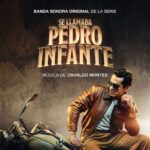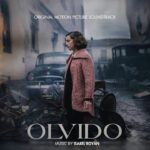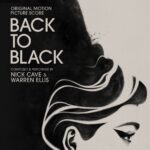Exclusive Interview to Alexander Cimini: Red Krokodil
 Sometimes is difficult to find an original and fresh work which can suprise you; Red Krokodil is definitely one of this kind, an impressive score edited by Kronos Records.
Sometimes is difficult to find an original and fresh work which can suprise you; Red Krokodil is definitely one of this kind, an impressive score edited by Kronos Records.
Alexander Cimini is provided of an exiquitive touch to thrill us, and the secret is the melody, pure and simple, a beautiful and bittersweet melody which emerges naturally and powerful.
It’s one of this retentives themes, in other words, one theme you can remember and hum (something very difficult to find today). You just have to listen to the first theme of the score, Red Krokodil Main Theme, to understand the great quality of the work of Cimini, and with few musical instruments (violin solos, cello solos and piano solos).
Sometimes it’s not neccesary a big orchestra to compose a great score. It’s neccesary inspiration and quality, and Alexander Cimini has got it.
And now, we have decided to present you this interview to Alexander Cimini about his career and his excellent work in Red Krokodil. Thanks to him for lend us his time. It was a total pleasure.
Interview to Alexander Cimini
.
Alexander, tell us…what’s your first strong memory about music, maybe the moment when you realized this is what I want to do?
I was born and raised in Germany, where, at that time, my parents ran a restaurant and I lived there until the age of 6. The radio in our car was always on and constantly played the most famous Morricone’s tracks like Duck, you sucker! The Good, The Bad and the Ugly, Once upon a time in the west and A fistful of Dollars. In the 70’s in Germany the French piano player Richard Clayderman was very popular and I remember my parents loved listening to his music. Thanks to him and to his music, I soon became fond of the piano. I first started playing the electronic organ Farfisa, then in 1981 my father bought his first upright piano. Maestro Ennio Morricone has been, for sure, a musical influence. The decisive moment for me was in 1982, the year of E.T., when John Williams writes one of the most beautiful scores in movie history. The musical memory of E.T. is still indelible in my heart.
You started learning piano very young, but your strong passion was filmmaking, working as director and editor from 2007 to 2010, and winning several awards. How do you remember that time?
I actually started directing and producing some independent films in 1997. When I was younger, I was very passionate about directing and very curious about what happened behind the camera. That curiosity helped me discover the cinematic spark inside me. I grew up watching films by the greatest filmmakers of the 70s and 80s, but I have to say that I have always been attracted to modern stories of youth. My latest film “M.A.R.C.O.” represents a clear example of these youth tales..
Would you like to direct again or you have enough emotions composing music for films?
 I will continue directing independent films if possible. Over the last months, I have been working on my next project. I really hope that my producer Enzo Porcelli will manage to get the funding to make this film. In Italy it’s a really tough time, especially for independent directors. Besides, politicians have no intention to cut their expenses and they prefer to make cuts from the arts. The only way to go on directing your films is to become your own producer and rely on the web. Composing music for films is my greatest love though and I will continue doing this job with dedication and passion. The web helped me a lot and allowed me to become more popular. I often receive requests of collaboration through Facebook, SoundCloud and LinkedIn.
I will continue directing independent films if possible. Over the last months, I have been working on my next project. I really hope that my producer Enzo Porcelli will manage to get the funding to make this film. In Italy it’s a really tough time, especially for independent directors. Besides, politicians have no intention to cut their expenses and they prefer to make cuts from the arts. The only way to go on directing your films is to become your own producer and rely on the web. Composing music for films is my greatest love though and I will continue doing this job with dedication and passion. The web helped me a lot and allowed me to become more popular. I often receive requests of collaboration through Facebook, SoundCloud and LinkedIn.
Do you think that directing a film is the best way to understand the importance of the music? In fact, you compose music for your own movies (M.A.R.C.O. or Aisberg).
Since I was a child I always thought of cinema as an inevitable and necessary twinning with music. If you remember the time of silent cinema, a small orchestra would set music to the images projected on screen. Therefore, in my opinion, cinema is always meant to be accompanied by musical scores. Over the years, I realized that the language of visual storytelling, the value of music in a scene and the metrics of editing absolutely need to complement each other.
You’ve worked in television (spots), cinema (movies, shorts) and theater. Which is the most complex medium for you, or, if you prefer, the most interesting? Why?
Each one of these elements has its own importance and complexity. I’m a pianist and creating scores for feature films is my thing. Working to a new film score along with directors with pronounced musical awareness is always a new challenge for me. As a director, I have always tried to focus on creativity. Said that, for many years I have worked as an actor for a theatre company. Acting amused me and I think that the job of the actor has been a fundamental addition to my job as director. If you work as a director and you think like an actor, you automatically know how to direct your players.
Tell us about CineScuola. Which was the embryo of this brilliant idea? Do you enjoy helping people to find their own way in the independent films productions?
The project CineScuola was not made for discovering gifted actors, but it had the specific goal of spreading critical film awareness among young students by enhancing group dynamics. The cinema course was mainly intended to increase students’ self-esteem and to improve communication with adults. We offered the possibility to deal with modern subjects all connected to the malaise of youth and then developing original ideas on the matter. At the end of the course, students would play the characters of their script. Over the last years, all these guys grew intellectually and this made me feel very proud. They all have lots of good memories about that time of their life. Whilst shooting these films, they wouldn’t just play a character but helping out the director of photography, the cinematographer and the make-up artist. Their parents were also involved in this project. The memories of these old times are still very vivid in my and their mind. Now, they are all adults. Some of them continued studying drama. Some went to University and some others live and work abroad. They all have one thing in common: after this experience, they will always watch films from a different perspective.
Red Krokodil. 2012. How did you arrive to this interesting project?
After writing the score “Passion & Love” for a peculiar scene of Hyde’s Secret Nightmare, director Domiziano Cristopharo and I became good friends and decided to keep in touch. Domiziano is a very engaging person who tends to involve trusted people in his projects. Working with him was an extraordinary experience for me.
Surprisingly, the score for Red Krokodil is highly emotional, full of beautiful and bittersweet melodies and, I think it’s an elegiac score too. Was this your own approach? Or did you receive some kind of instruction from the director?
 At first I was told to write a very melancholic theme. This request just sounded like a simple musical collaboration and yet I hadn’t seen the film, not even a pre- editing scene or a work copy. Before I had started writing the theme, Domiziano called me back saying I would have to compose the score for the entire film. It really came as a surprise. At that point he told me the main subject of the film and his point of view. I thought of the main idea of the film as a sort of an interior self-inflicted Holocaust. I chose the violin and solo violoncello because I imagined an atmosphere of desperation and loneliness. Roberto Noferini is an amazing violinist and when he plays he reaches such high points of intensity that reminds me of Perlman’s style. Same story for Sebastiano Severi, who played a solo violoncello. His interpretation always inspires me.
At first I was told to write a very melancholic theme. This request just sounded like a simple musical collaboration and yet I hadn’t seen the film, not even a pre- editing scene or a work copy. Before I had started writing the theme, Domiziano called me back saying I would have to compose the score for the entire film. It really came as a surprise. At that point he told me the main subject of the film and his point of view. I thought of the main idea of the film as a sort of an interior self-inflicted Holocaust. I chose the violin and solo violoncello because I imagined an atmosphere of desperation and loneliness. Roberto Noferini is an amazing violinist and when he plays he reaches such high points of intensity that reminds me of Perlman’s style. Same story for Sebastiano Severi, who played a solo violoncello. His interpretation always inspires me.
It’s curious that we barely find atonal or dark music (maybe it would have been a logical way). But you prefer to describe musically the drama of a man addicted to a fatal drug who is living in a post-nuclear city, alone. Why? I think it’s an excellent decision, by the way.
When Domiziano told me the story of Red Krokodil, I imagined the main character facing like a sort of interior Holocaust. When I think of Holocaust in cinema, my memories are brought back to Spielberg’s masterpiece Shindler’s List and its theme composed by pianist John Williams and solo violinist Itzhak Perlman. Hence, I have decided to tell the interior tragedy of the main character by creating a melancholic melody in order to make the audience feel emotional rather than appalled and disgusted during dreadful scenes. In the film, there are some more dark tunes though those depict the scenes where the main character falls prey to his hallucinations. In my opinion, the clean contrast of these musical moods would have been appropriate to better separate the main character’s real life from his imagination.
The score is constructed with solo instruments (violin, cello and piano) accompanied of digital sounds. A perfect assembly. Was this a decision resulting from budget constraints or you decided this assembly?
Because of the lack of funds, you often have to agree to a compromise in the independent cinema world. Real instruments played along virtual instruments can often give amazing results. Having a real orchestra at your disposal is every young composer’s dream, but the limited budget is often an insuperable obstacle. The most important thing is to write good scores. A big orchestra performance can’t surely improve on a badly written score. A film score has to be well written no matter which instruments employed to play it.
How did this movie inspire you to compose this beautiful and evocative score? The effects of this drug are really terrifying.
Broke Madson’s great interpretation and Domiziano Cristopharo’s splendid shots inspired me. That desolating feeling of loneliness, the voluntary isolation of the main character, his grimy and deserted flat that looked like a lair and his grief in a few moments of his clarity of thought lead me to write the music score for this film. Red Krokodil’s scenes are agonizing not only for the audience, but for the director and the main actor as well. Music is seen as a reflection of that pain and at the same time as a possible way of redemption.
You worked in Hyde’s Secret Nightmare (2011), with music of Kristian Sensini. How was this collaboration with Kristian? Passion and Love, a piece of music edited by Kronos, is really fantastic.
“Passion & Love ”is my only track in the film Hyde’s Secret Nightmare. I think the whole soundtrack of the film was ready when I was asked to write this track. I have never had the chance to collaborate with Kristian Sensini. I think he’s a good and technological composer. I love reading his blogs and watching his video reviews on new virtual instruments.“Passion & Love” was my first collaboration with Domiziano Cristopharo. I can’t disclose the content of the scene where my track is on but I can say it was a real challenge for me.
 Changing genre and medium, you’ve worked in Closer (2013), a science fiction short film, where the music is more epic, with action and adventure. Do you enjoy working in this kind of genres? I think this kind of projects are always interesting for a composer.
Changing genre and medium, you’ve worked in Closer (2013), a science fiction short film, where the music is more epic, with action and adventure. Do you enjoy working in this kind of genres? I think this kind of projects are always interesting for a composer.
Working on “Closer” soundtrack has been an amazing experience. By following Angelo Licata’s guidelines, I composed a typical 70/ 80’s science fiction music score. This short film is also a tribute to films like “Back to the future”. The director wished to recreate that same mood for his short. I think it is very important for a composer to create scores for different films’ genres. It’s challenging and stimulating. I grew up in the 70s watching films of great filmmakers like Steven Spielberg, George Lucas, Francis Ford Coppola, Brian De Palma, Robert Zemeckis and Joe Dante. They all gave fundamental relevance to music scores in their films. Personally, I have always been a science fiction fan, so working on “Closer”soundtrack delighted me.
About the future…what projects do you have in the pipeline?
At the moment, I’m finishing up the soundtrack for the film “Bellerofonte” directed by Domiziano Cristopharo. It’s a very classical and romantic music. I’m very happy about it. At the same time I’m composing the soundtrack for the short film “Malavita” directed by Angelo Licata and in which stars Luca Argentero. For this project, I have in mind a very emotional and tense score. Going forward, I hope Angelo Licata will be able to make a lovely science fiction film. I also cross my fingers for my next film that I will direct and compose the soundtrack.
As a curio, what do you like or do not like of current film music?
I love the new generation of composers like Roque Baños, Fernando Velazquez, Lucas Vidal. They all have a very classical background and they know how to mix classical sounds with avant-garde music. Emotivity is always a powerful element in their film scores. Anything that I don’t like? No, there is nothing. All music is beautiful whatever its form or interpretation is.
And finally, some very quick personal questions…The first thing that comes to mind. You only need to provide one reply. Ok? Let’s go!
 A Movie… E.T.
A Movie… E.T.
A Musical Instrument…The piano
A Composer… James Newton Howard
A Book… Stand By Me
A City… Dortmund
A Song… Music –John Miles
A TV Series… Prison Break
Thanks for all Alexander.
Thanks to you.
Special Thanks to:
Oscar Salazar for the Translations por las traducciones
Alexander Cimini for lend us his time




